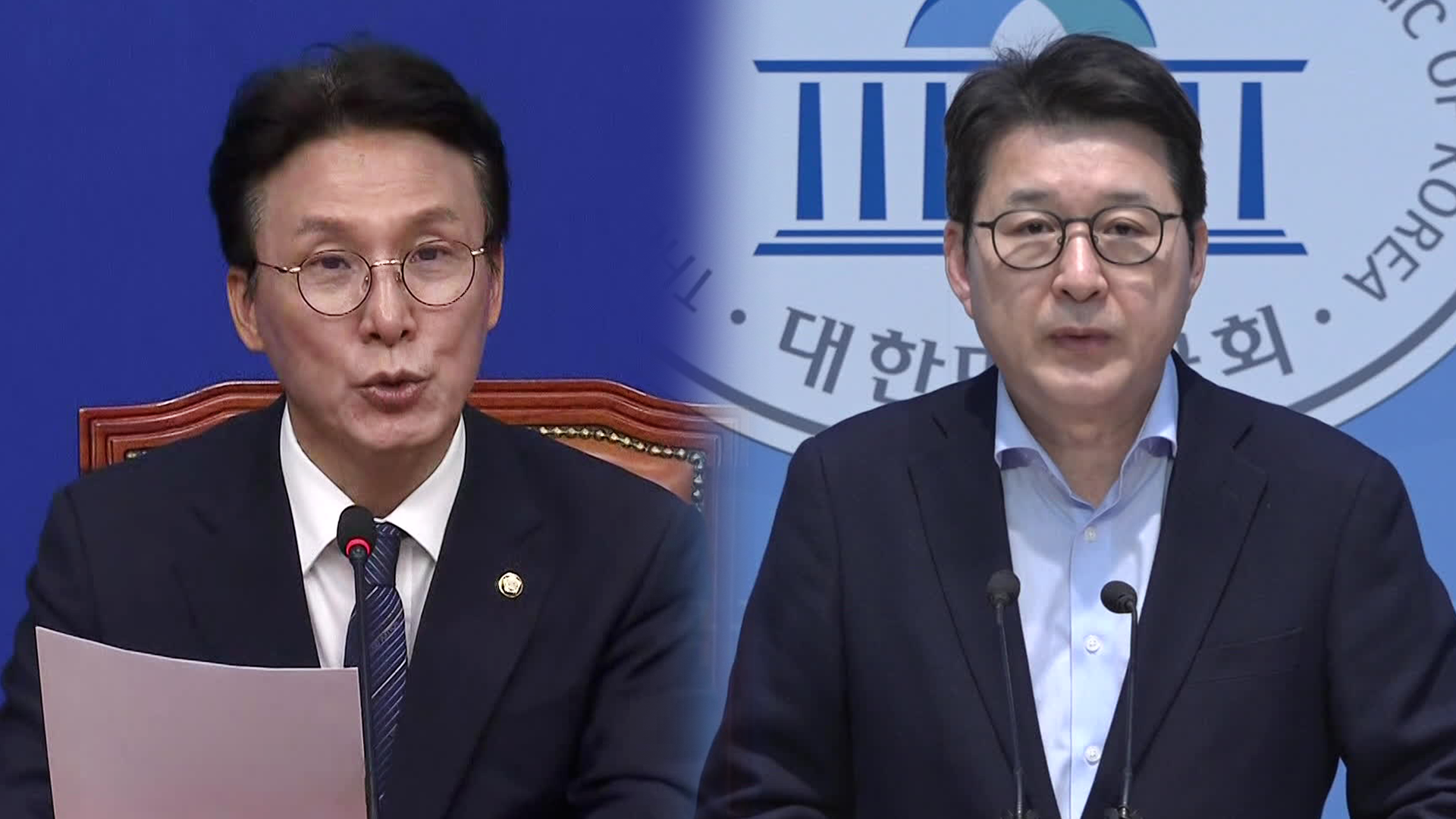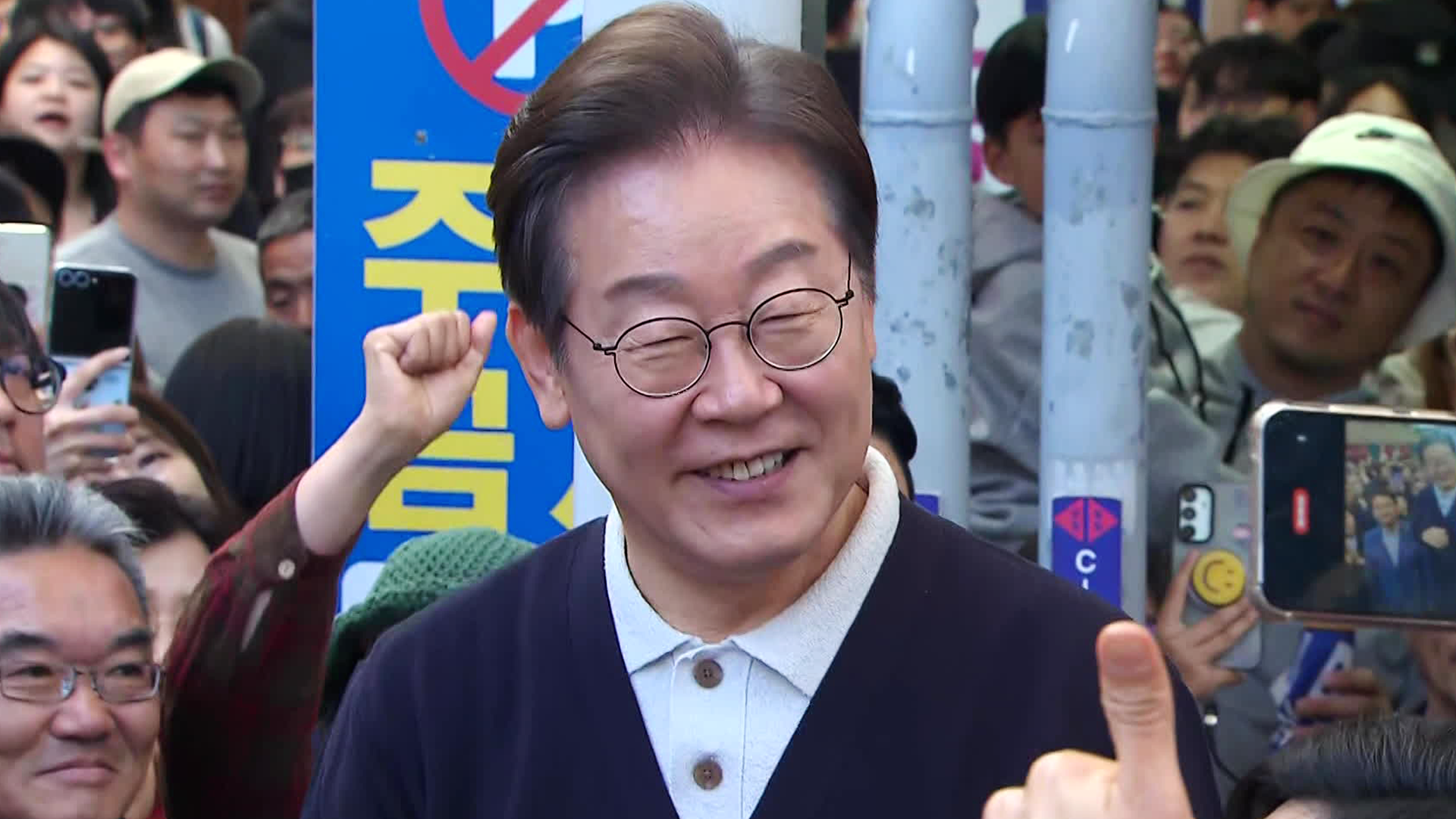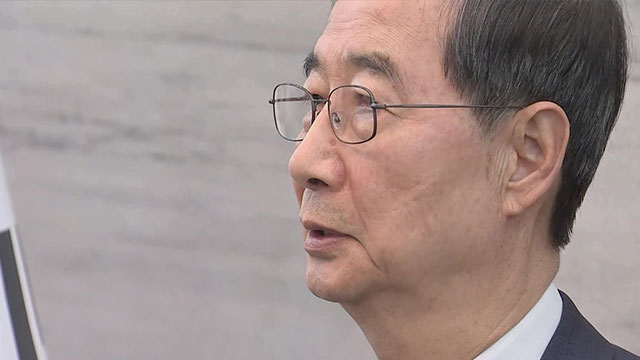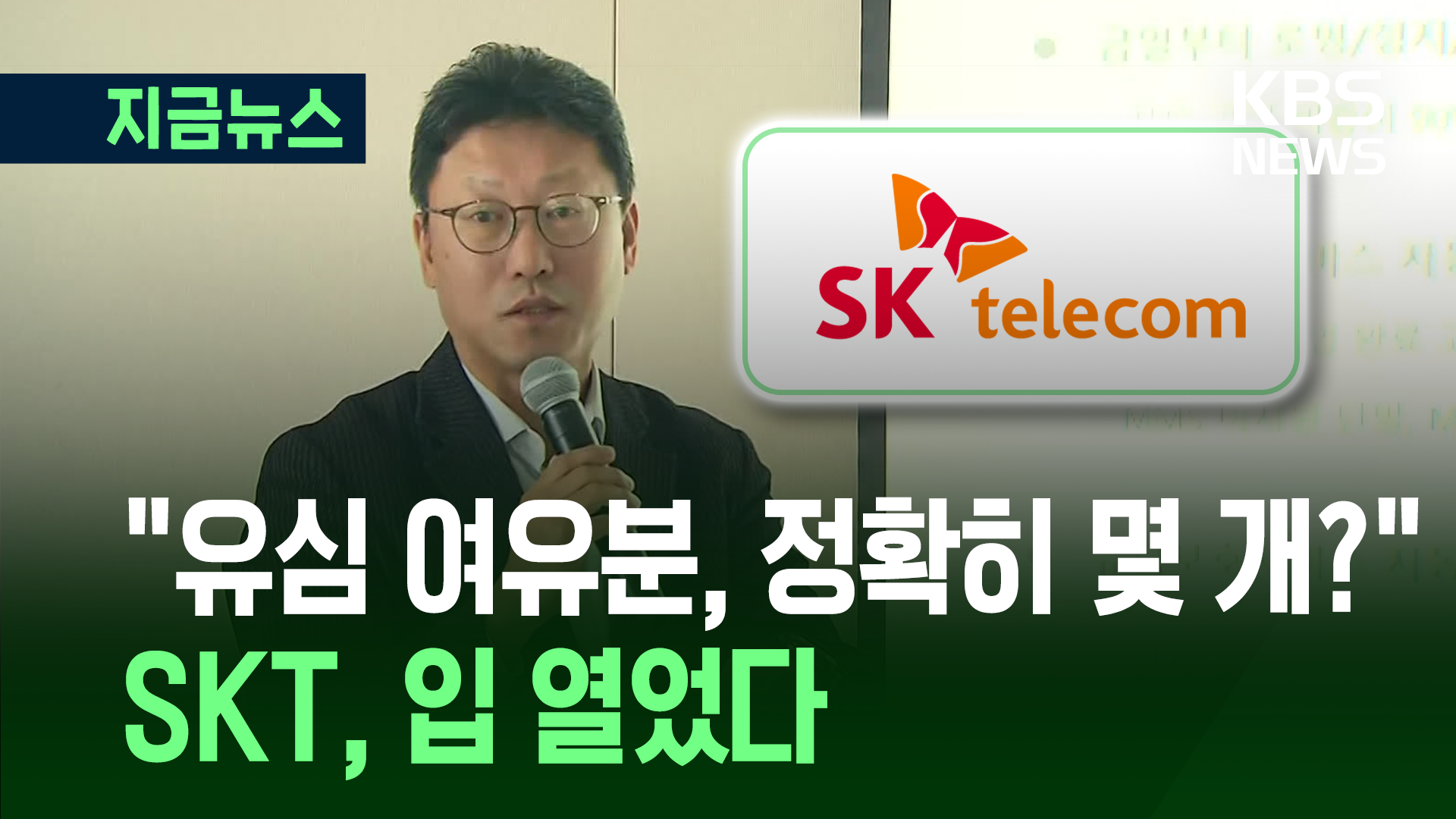[News Today] Trump’s 100 days: Growing uncertainty
입력 2025.04.29 (16:44)
수정 2025.04.29 (16:45)
읽어주기 기능은 크롬기반의
브라우저에서만 사용하실 수 있습니다.
[LEAD]
Korean companies are feeling the impact of President Trump's first 100 days in office. Unprecedentedly high tariffs have already dealt a real blow to exports. A bigger challenge lies ahead, as uncertainty is expected to persist. Many fear the situation could further strain business operations. But for now, many companies are choosing a cautious wait-and-see approach.
[REPORT]
Hyundai Motor posted record revenue of 44 trillion won, or over 30 billion dollars in the first quarter.
Last month, it also achieved record sales in the U.S.
However in the second quarter, the carmaker has decided to hold out with its stockpiles in the U.S.
Lee Seung-jo / Hyundai Motor (April 24)
We pushed shipments to the max through end of March. Now we have 3.1 months of inventory in North America for finished cars. That of auto parts is even longer.
This is all due to the uncertainty in U.S. tariff policy.
Samsung, LG, and others plan to buy time by making full use of their existing production facilities in America.
They could expand local investment but there are so many factors to consider such as investment and production costs.
Firms are also considering, though not immediately, the relocation of production bases aimed at dispersing risks related to tariffs and price hikes within the U.S.
Even rival firms POSCO and Hyundai Steel have decided to join hands to jointly build a steel mill in the U.S.
Other businesses are seeking to diversify investment away from China to other markets, such as India, in light of the U.S.-China rivalry.
Jang Sang-shik / Korea Int'l Trade Association
Companies need to address China's key minerals controls as well as U.S. policy against China. If firms move supply chains to safer locations or diversify.
Meanwhile, Seoul is speeding up tariff talks with Washington.
Of the four agenda items agreed during talks last week, three areas — tariffs, non-tariffs, and economic security — will form about six working groups and begin meetings next week.
The remaining agenda of exchange rate policy will be addressed separately by financial authorities.
The government said the final outcome of the negotiations will be decided by the next administration after the snap presidential election.
■ 제보하기
▷ 카카오톡 : 'KBS제보' 검색, 채널 추가
▷ 전화 : 02-781-1234, 4444
▷ 이메일 : kbs1234@kbs.co.kr
▷ 유튜브, 네이버, 카카오에서도 KBS뉴스를 구독해주세요!
- [News Today] Trump’s 100 days: Growing uncertainty
-
- 입력 2025-04-29 16:44:21
- 수정2025-04-29 16:45:31
[LEAD]
Korean companies are feeling the impact of President Trump's first 100 days in office. Unprecedentedly high tariffs have already dealt a real blow to exports. A bigger challenge lies ahead, as uncertainty is expected to persist. Many fear the situation could further strain business operations. But for now, many companies are choosing a cautious wait-and-see approach.
[REPORT]
Hyundai Motor posted record revenue of 44 trillion won, or over 30 billion dollars in the first quarter.
Last month, it also achieved record sales in the U.S.
However in the second quarter, the carmaker has decided to hold out with its stockpiles in the U.S.
Lee Seung-jo / Hyundai Motor (April 24)
We pushed shipments to the max through end of March. Now we have 3.1 months of inventory in North America for finished cars. That of auto parts is even longer.
This is all due to the uncertainty in U.S. tariff policy.
Samsung, LG, and others plan to buy time by making full use of their existing production facilities in America.
They could expand local investment but there are so many factors to consider such as investment and production costs.
Firms are also considering, though not immediately, the relocation of production bases aimed at dispersing risks related to tariffs and price hikes within the U.S.
Even rival firms POSCO and Hyundai Steel have decided to join hands to jointly build a steel mill in the U.S.
Other businesses are seeking to diversify investment away from China to other markets, such as India, in light of the U.S.-China rivalry.
Jang Sang-shik / Korea Int'l Trade Association
Companies need to address China's key minerals controls as well as U.S. policy against China. If firms move supply chains to safer locations or diversify.
Meanwhile, Seoul is speeding up tariff talks with Washington.
Of the four agenda items agreed during talks last week, three areas — tariffs, non-tariffs, and economic security — will form about six working groups and begin meetings next week.
The remaining agenda of exchange rate policy will be addressed separately by financial authorities.
The government said the final outcome of the negotiations will be decided by the next administration after the snap presidential election.
이 기사가 좋으셨다면
-
좋아요
0
-
응원해요
0
-
후속 원해요
0















이 기사에 대한 의견을 남겨주세요.